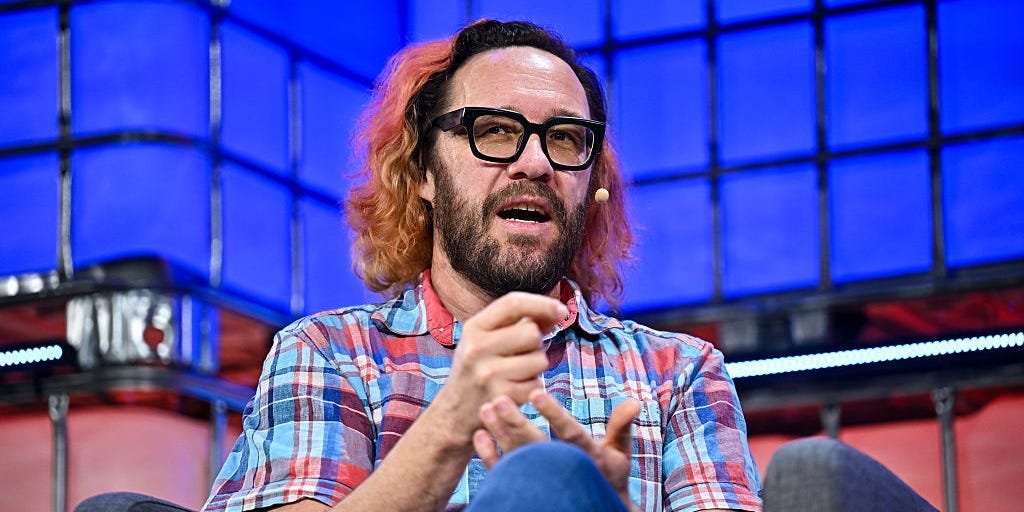If you’re missing the social media glory days of the second Obama administration, you’re in luck.
DiVine, a decentralized reboot of Vine backed by Jack Dorsey, is resurrecting the long-lost super-short-form video platform.
Behind the revival is one of the original Twitter employees who worked closely with Dorsey, Evan Henshaw-Plath, who goes by the alias Rabble.
For the founder, diVine isn’t just a nostalgia play for bringing back old six-second viral videos, but a sort of protest against the walled garden of “black box” algorithms that social media apps have become, with algorithms feeding users AI-generated content.
“There’s this bullshit that we’re seeing from Meta and OpenAI and others where they decided that somehow we’re better off with all AI-created social media content,” Rabble said in an interview with Business Insider. “That’s not where social media came from. Social media was social first. It’s about humans and our connection, not just pretty videos.”
Rabble believes that the internet is experiencing “enshittification” — a phrase coined by author Cory Doctorow to refer to the gradual degradation of platforms that prioritize serving shareholders over users.
DiVine, he said, is his “attempt to fight back against the enshittification, in code.”
Spokespeople for OpenAI and Meta did not respond to a request for comment.
Screenshot/Divine
Do it for the diVine
The internet has been longing for Vine since the app was shut down in 2017 following Twitter’s acquisition of the product in 2012. TikTok — and the myriad of TikTok clones like Instagram’s Reels or YouTube Shorts — filled the Vine-shaped void on people’s screens.
Rabble told Business Insider that it was crucial for him to restore the old videos in order to preserve “our history.”
The techno-activist, 48, said he was “way too old” for the app, but enjoyed the content and its community of creatives.
“I started digging into the old Vine and they just had an innocence to them,” he said. “I was like, ‘Would it be possible to rebuild that today, and if we did rebuild it today, can we get back the old Vines?'”
Rabble said he’s currently sifting through 2.5 terabytes of archive data. The app has restored over 100,000 archived videos from the original platform.
DiVine is supported by a nonprofit, And Other Stuff, which has received a $10 million grant from Dorsey. The nonprofit’s mission is to build an open-source infrastructure and apps. Rabble said it only cost a few thousand dollars to jump-start the project.
Dorsey’s blessing may not be a surprise: A few years ago, the Twitter cofounder said on X that his “biggest regret” was shutting down Vine.
This is also not the first attempt to revive the short-form video platform. In 2022, Elon Musk instructed Twitter engineers to rebuild Vine shortly after he bought Twitter (now X). This summer, Musk continued X’s pursuit to bring back Vine, posting that the company had discovered an archive of Vine content.
X did not immediately respond to a request for comment.
Nostalgia for the internet’s past lives
Rabble said diVine wasn’t a “Hail Mary” attempt to dethrone TikTok, Reels, YouTube Shorts, and other platforms. He said he’d like to find some way for the app to pay for itself in the future and envisions a system similar to Twitch, which has in-app purchases and allows users to send micropayments to creators.
Screenshot/Divine
The app is also decisively anti-AI content, advertising “real moments from real humans, not AI” on its website — a stance that comes as internet users grow weary of the barrage of AI-generated content from the likes of OpenAI’s Sora or Meta’s Vibes.
Rabble told Business Insider that he and Dorsey remain in regular contact and share a similar vision of a decentralized app that functions like email, allowing users to use any service provider — such as Gmail, Outlook, or Yahoo — to message each other.
The founder believes that social media apps have become too centralized, as seen in the case of X, which no longer allows users to interact with the platform’s content unless they log in.
“What happened with a lot of very big centralized social media platforms is you could only communicate with other people on the platform,” he said. “Social media shouldn’t be a monoculture.”
It’s also not the only new platform looking to the internet’s past as a way to rekindle connections online in the age of AI. A wave of social startups centered on in-person interactions or alternatives to Big Tech social platforms promising deeper connections have launched in the past few years, with some getting the attention of investors.
And Vine isn’t the only relic of the internet people feel nostalgic about, as some of these startup founders draw inspiration from the apps they grew up on, such as Myspace or Tumblr.
“This is a project that just feels like a good idea,” Rabble said. “It’s a project that shows the kind of internet we want. It’ll be useful for some portion of users. And if it becomes really popular with a few thousand people and they enjoy it — that’s great.”
